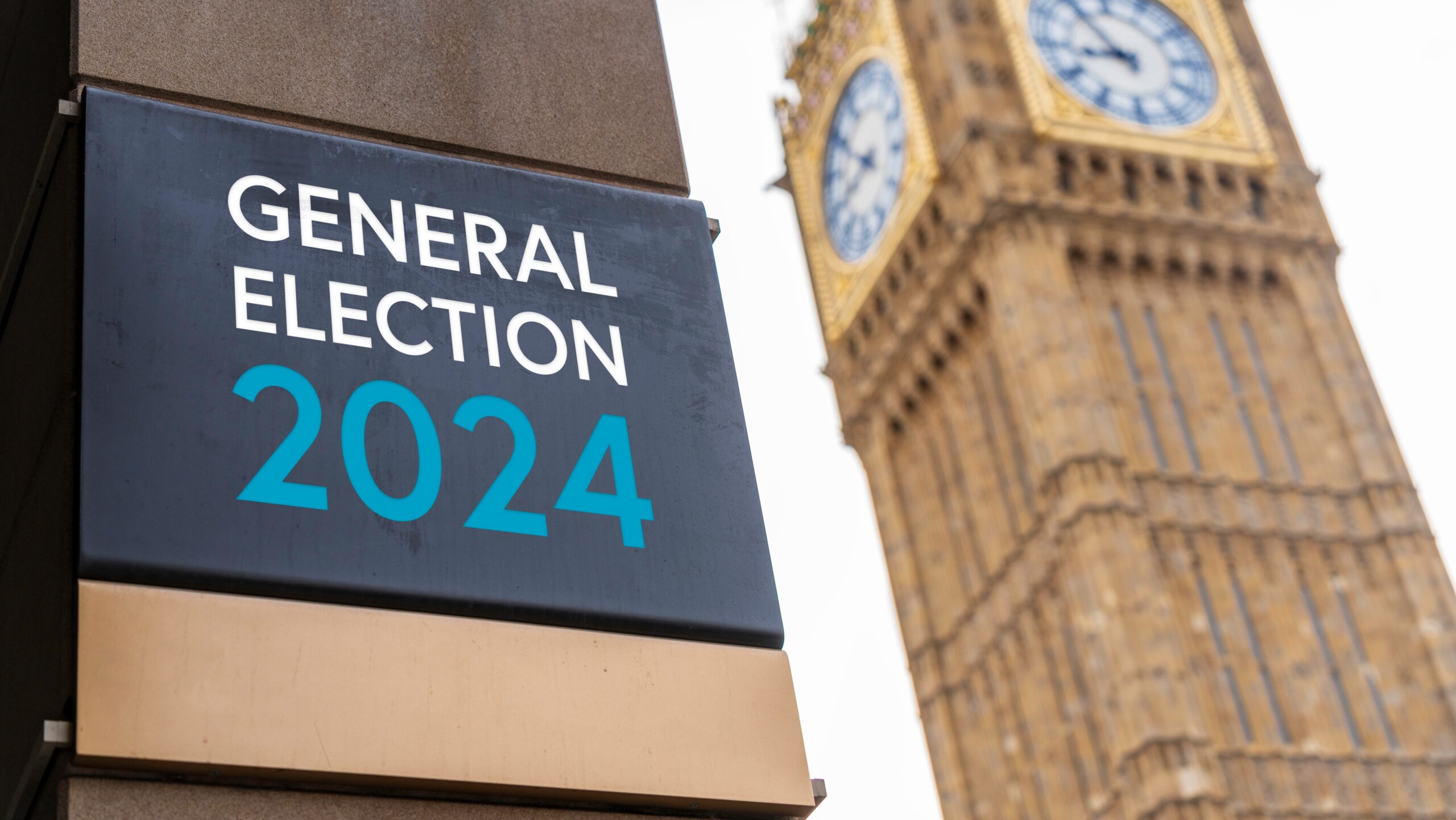So the General Election is happening on Thursday 4 July. What happens now?
Well, probably a Labour government, at 99 per cent probability, according to election polling guru John Curtice. Though we can’t rule out the possibility of some kind of major event during the campaign shifting the tides away from Labour, that “time for a change” mood in the country is pretty palpable.
The immediate impact is that policy agendas unfolding under the Conservatives will be put on the back burner or disappear altogether. Although one of the last things the current government has done is to announce plans to require universities to sign up to a code of conduct on use of international agents, that will be for a future government to enact if at all.
We shouldn’t necessarily expect there to be a government response to the work of the Public Accounts Committee on franchised university provision, and we could be waiting for a while to find out whether the Department for Education still plans to reconfigure the way Disabled Students’ Allowance is organised. The already delayed rollout of the Lifelong Learning Entitlement will pause pending confirmation of whether the next government plans to take it forward in its current form, take a different approach, or scrap it altogether.
Manifest destiny
While we have to wait for the parties’ manifestos to find out what their full agenda will be and where higher education might feature, informed speculation suggests that universities should not expect to see a fully worked-up plan for HE during the next parliament in the manifestos. The biggest issue facing the sector in England by quite a wide margin is the funding system for teaching. The Conservatives while in government have consistently played down the issue, while Labour’s agenda has focused on easing the burden of student loan repayments for graduates – arguably a more powerful potential constituency of Labour voters than students.
There are, to put in mildly, no votes in tackling universities’ financial troubles – though expert political commentators, particularly at the Financial Times, have started pointing out the social and economic implications if universities are unable to flourish. Voters, quite simply, have different priorities for government – the latest polling from Ipsos confirms that the NHS, the economy, immigration, and inflation are the top four public concerns. And even within education spending, recent Public First polling has shown that the public generally prioritises expansion of apprenticeships and more funding for schools over spending on HE (in this instance, lowering fees for students).
Given the divisiveness of the politics around higher education participation and funding, for any party seeking to gain the confidence of an election-winning coalition of voters, adopting a position on HE funding would probably be a tactical mistake.
We might reasonably hope, however, to see universities and higher education get a mention in the context of agendas around science and innovation, skills and industrial strategy, Britain’s role in the world, public sector jobs, youth and student mental health, or community cohesion. Parties that do this can signal to the sector their understanding of the contribution that universities make and the role they play in the wider health of the nation, and by association, an appreciation that higher education must continue to thrive. This would create a firmer foundation for university engagement in the policies of a future government than simply leaving them out entirely.
There is a fairly high likelihood that student issues will come up in manifestos or in the campaign – cost of living, youth mental health, and access to education opportunities are all issues that Labour has raised in the campaign so far, and are far more doorstep-friendly than higher education finances. While the possibility of a direct retail offer to students in the form of movement on maintenance loans or grants shouldn’t be ruled out, it is equally plausible that the parties will seek to woo students through showing concern for their wellbeing, because bluntly, that costs less. However a broader commitment to making the repayment system more “progressive” as well as supporting students better, could well make Labour’s manifesto.
That doesn’t mean that the university funding issue won’t crop up during the campaign – shadow education secretary Bridget Phillipson has already had to not rule out the prospect of fee increases on Question Time. It was recently reported in the Financial Times that Labour leader Keir Starmer’s chief of staff Sue Gray has already drawn up a memo that includes “universities going under” as one of six major risks facing an incoming government. Were a university to get into public financial trouble during the campaign itself, that could have a material impact on public perceptions and the parties’ positions, though the timing of the election makes this somewhat less likely, as any big wobble would most likely come in the autumn towards the end of the current recruitment cycle.
The good news, as far as the sector is concerned, is that the inclusion of HE on Gray’s list means that those in Labour planning for the transfer of power and early days of a new administration understand the perils facing the sector. That means the arguments don’t need to be rehearsed from scratch and instead the sector can focus on working with a new government to find solutions when the time comes.
What comes after
For the sector, holding politicians’ feet to the fire on what their plans for HE are during the campaign itself would also be bad tactics. Anyone who was around for the 2010 General Election will recall the risks for prospective MPs of making pledges you then have to deliver in government, when the Liberal Democrats gaily signed up to an NUS campaign pledge to not increase tuition fees only to bitterly regret it once in coalition with the Conservatives.
Instead, universities should focus on what they might hope the next government will do when it comes into power. And in doing so, think in terms of what that government is likely to want to achieve, the practical things that universities can do to support those aspirations, and what (ideally low cost) policy measures might be needed from government to maximise the impact of universities’ contribution. This isn’t, by and large, about making sure policymakers understand the value of higher education and research – that argument has pretty well been won. It’s about working through which bits of higher education and research will make the most meaningful contribution to larger public goals over the next parliament.
Although Labour’s five missions for government are criticised for being vague and woolly, and there’s still plenty of scope for backtracking as the campaign unfolds, we can be fairly certain that Labour, or indeed any government, will be thinking about tackling key major challenges around economic growth, productivity, security, innovation, health, and quality of life. These issues won’t be solved by one government department or type of institution but by concerted effort across sectors of the economy and government. Now is a good time for higher education institutions to look to their partnerships and alliances in their region, and nationally, strengthen those strategic relationships, and conduct an analysis of combined strengths or potential strengths that could form part of a future regional industrial strategy, local regeneration agenda, or sector-specific policy challenge, as well as identifying any potential gaps or missing elements.
All this is also not to say that we mightn’t see a major review of higher, or more likely, post-compulsory education in the next Parliament. It very much depends on whether the judgement of the incoming government is that the sector in its current configuration and with the current regulatory arrangements, has the capacity or capability to play the role that is envisaged for it. A major review, perhaps something akin to the Australian Universities Accord, would have the benefit of defining a shared vision of the role of higher education in the future of the country that could inject some much-needed enthusiasm into post-compulsory education policy and build consensus around strategic questions about routes in, the structure and content of HE qualifications, students’ experiences, the alignment between research and teaching, labour market outcomes and so on. The downside is that it could take a lot of time and come to some quite expensive conclusions, which the government may not have the appetite to enact.
While we wait for the campaigns to unfold, the publication of manifestos, and ultimately for a new government, there remains one further opportunity for higher education institutions to make a mark during the campaign itself. Hosting hustings, and encouraging and actively registering students (and staff) to vote, and engaging in public debate around the issues remain critical ways for higher education to serve its civic role. While politics has felt like a bit of a bin fire lately, the exercise of democracy is always a cause for celebration.




